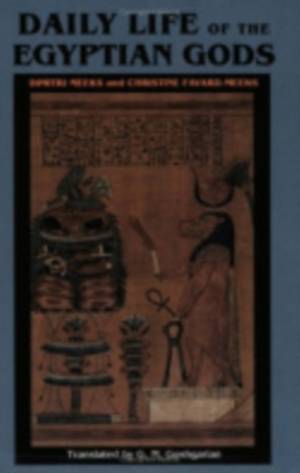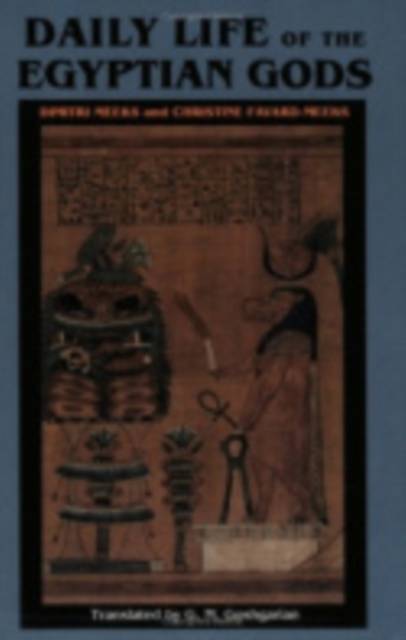
- Afhalen na 1 uur in een winkel met voorraad
- Gratis thuislevering in België vanaf € 30
- Ruim aanbod met 7 miljoen producten
- Afhalen na 1 uur in een winkel met voorraad
- Gratis thuislevering in België vanaf € 30
- Ruim aanbod met 7 miljoen producten
Daily Life of the Egyptian Gods
Images of the Commune
Dimitri Meeks, Christine Favard-MeeksOmschrijving
This is the first English translation of a highly appealing volume originally published in French in 1993. Informed by a sense of wonderment at divine doings, it treats the ancient Egyptian gods as if they were an ethnic group that captured the fancy of ethnologists or sociologists.The book begins with a discussion of the gods' community as a society unto itself. The authors describe the structures of the society of the gods and some of the conflicts that frequently upset it, with individual gods acting to protect their own positions in an established hierarchy and struggling to gain power over their fellows. The nature of their immortal but not invulnerable bodies, their pleasures, and their needs are considered. What did they eat, the authors ask, and did they feel pain? The second part of the book cites familiar traditions and little-known texts to explain the relationship of the gods to the pharaoh, who was believed to represent them on earth. By performing appropriate rites, the pharaoh maintained a delicate equilibrium, balancing the sky home of the sun god, the underworld of Osiris and the dead, and the earth itself. While each world was autonomous and had its own mythological context, the separate spheres were also interdependent, requiring the sun's daily course and the pharaoh's ritual actions to ensure the cohesion of the universe.
Specificaties
Betrokkenen
- Auteur(s):
- Vertaler(s):
- Uitgeverij:
Inhoud
- Aantal bladzijden:
- 288
- Taal:
- Engels
Eigenschappen
- Productcode (EAN):
- 9780801482489
- Verschijningsdatum:
- 31/10/1996
- Uitvoering:
- Paperback
- Formaat:
- Trade paperback (VS)
- Afmetingen:
- 154 mm x 229 mm
- Gewicht:
- 317 g

Alleen bij Standaard Boekhandel
Beoordelingen
We publiceren alleen reviews die voldoen aan de voorwaarden voor reviews. Bekijk onze voorwaarden voor reviews.











